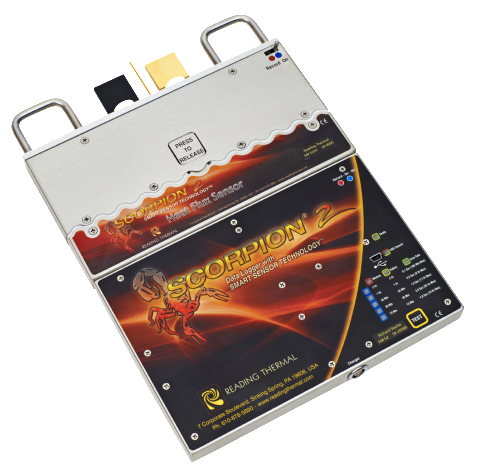In a commercial bakery, equipment downtime can be one of the costliest issues you’ll face. Every minute your ovens, mixers, or other machines are offline translates into lost production, wasted ingredients, and delayed deliveries. Using data loggers to monitor oven temperatures in commercial bakeries is a perfect way to avoid this problem. Reading Thermal experts have some reasons why.
Proactive Maintenance Through Monitoring
Data loggers track a variety of parameters, including oven temperature and humidity levels, both of which are critical to maintaining equipment health and efficiency. If an oven consistently operates outside of its ideal range, it can place undue stress on the system, leading to eventual failure. A data logger, however, will record these fluctuations and notify you in real-time, allowing you to take corrective action before it becomes a costly repair.
For example, if an oven is overheating or its fan system isn’t working properly, a data logger will flag the issue immediately. This early detection lets you schedule maintenance at a convenient time, avoiding the downtime that comes from unexpected breakdowns. In addition, data loggers store historical data, enabling your team to identify patterns that may signal impending equipment issues.
Enhancing Preventive Maintenance Schedules
A lot of bakery equipment is maintained on a regular schedule. However, a static schedule doesn’t always align with the actual wear and tear your machinery endures. By using data loggers, you can shift from a time-based maintenance approach to a condition-based one. This means that instead of performing maintenance every few months regardless of equipment condition, you can rely on the data logger to tell you when performance starts to dip or when certain conditions are met, signaling the need for intervention.
This more strategic approach to equipment care prevents unnecessary downtime. It also ensures that you’re not performing maintenance too early, which can be a waste of time and resources.
Reducing Costs Through Energy Monitoring
Energy usage is another key factor that data loggers monitor, and it’s directly tied to the efficiency of your equipment. If you notice a spike in energy consumption, it could be a sign that something isn’t working optimally. For example, an oven that consumes more energy than usual may have a malfunctioning heating element or an airflow problem. By catching these issues early through the data collected, you can fix the problem before it leads to a major breakdown, saving you from both the cost of repairs and the energy waste that comes from inefficient equipment.
Better Compliance and Reporting
In the bakery industry, compliance with safety and quality regulations is paramount. Data loggers provide reliable documentation that your equipment is performing within regulatory standards. This helps you avoid penalties, fines and potential shutdowns due to non-compliance. The data stored in your system can be easily accessed and analyzed for audits, quality checks, and other reporting requirements.
Want More Information?
Using data loggers in your bakery isn’t just about monitoring temperatures or humidity – it’s about gaining the insights needed to keep your equipment running efficiently and effectively. This proactive approach helps avoid expensive repairs, enhances productivity, and keeps your bakery’s operations moving smoothly. In a competitive industry where time is money, data loggers are an invaluable tool to protect your bottom line.
Find out more about the benefits of using data loggers to monitor oven temperatures in commercial bakeries by calling Reading Thermal at 610-678-5890 or contacting us online.

